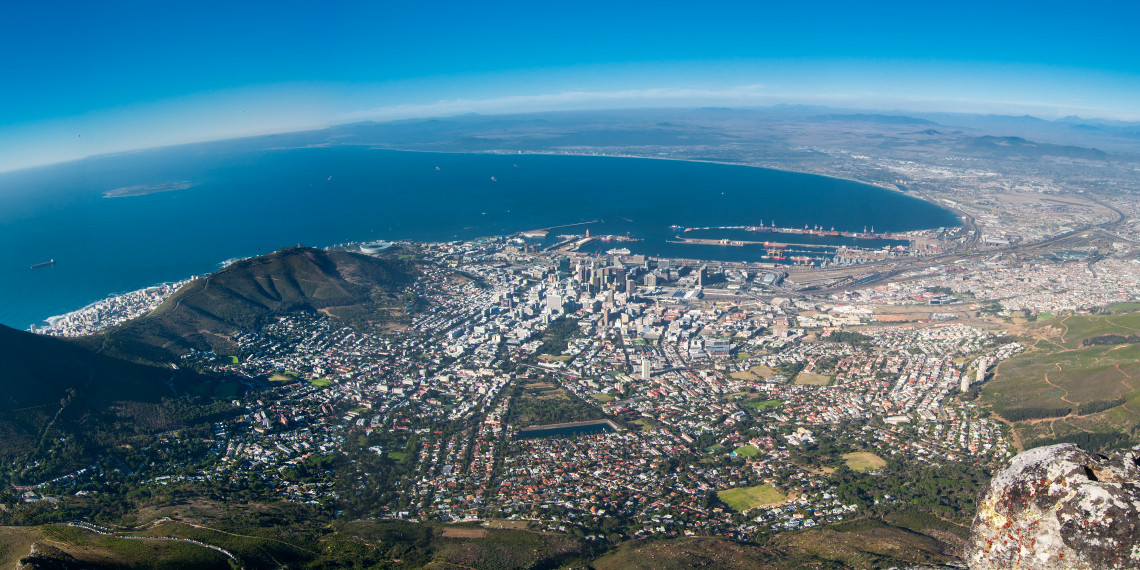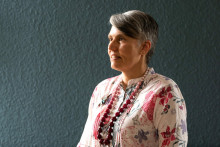day zero
Cape Town’s Day Zero was originally scheduled for April, but has been recently moved up to the 4th of June. From that day onwards, at least a million homes (about 75%) of the South African’s city will no longer have any running water. To avoid this or a worse scenario, the locals are allowed to use only 50 liters per person per day. (To put this into perspective, an average Dutch citizen uses 120 liters per day.)
Cape Town is in the middle of a very serious water crisis. How is this possible? Has it been simply caused by a severe drought?
Hoekstra: ‘Many regions in the world have pronounced wet and dry periods every year. We speak of droughts when there is less water in the dry period than usual – which in itself is part of regular climate variability. Droughts are a natural phenomenon. One could argue that this is an extreme drought, which is true, but I’m inclined to say that the situation in Cape Town is basically due to the continued increase in water demand while annual water availability is limited. The city has grown massively in the past decades, and that has led to the current problems.’
'The city has grown massively in the past decades, and that has led to the current problems.'
Some experts call it a ‘once-in-a-millennium drought’. Has climate change played a role?
‘We could say that this event might be a representative of the type of droughts we can expect in the future due to climate change. However, it is difficult to allocate a specific drought to climate change, it could still be a normal occurrence. I wouldn’t be quick to blame this situation only on climate change. I see the growth of the city and associated water demand as the primary issue. Reduced water availability as a result of climate change comes on top of that, worsening the situation, but without climate change Cape Town will continue to be in trouble as well.’
Could the situation have been prevented?
‘There are things that could have been done. Reservoirs could have been enlarged, as in the past, but that wouldn't be the real solution. We should really be asking if we should be living in a place with more people than can be accommodated by the available water. The authorities should make people aware of the problem: put higher prices on water consumption, promote water saving technology, reuse water, and stop using water for unnecessary outdoor purposes. That is what they are doing now and it seems to be working to a degree.’

Can we still avoid Day Zero?
‘The term ‘Day Zero’ is an interesting way of hyping the event. It is smart, it makes people pay attention. But there is nothing new here. This happens all the time, all around the world. There are interrupted water supplies in many cities and nearly all megacities have slums or informal settlements with no water supply at all. Every year, every day, about 10% of the world’s population has no running water. Many places experience water scarcity, also western countries: the West Coast of the U.S. or Southern Europe, for example. A few years ago, Barcelona had to ship in water from France.
Back to the question, Day Zero can be delayed – as it has been. Chances are it will rain before we reach it. Cape Town might get saved by the rain.’
Even if that is the case, won’t the situation repeat itself? After all, Cape Town’s water reservoirs are currently down to only 20% of their capacity. One can imagine it would have to rain quite a lot for them to get full again.
‘Yes, the rain might save them now, but there might be problems again next year. If people keep moving to the city and using the same amount of water, the problem will never be solved. The city might need to increase water prices significantly and promote the right technology. In fact, they should. They should use this event to change the policies, because if people will ever be willing to make changes, it is now.’







